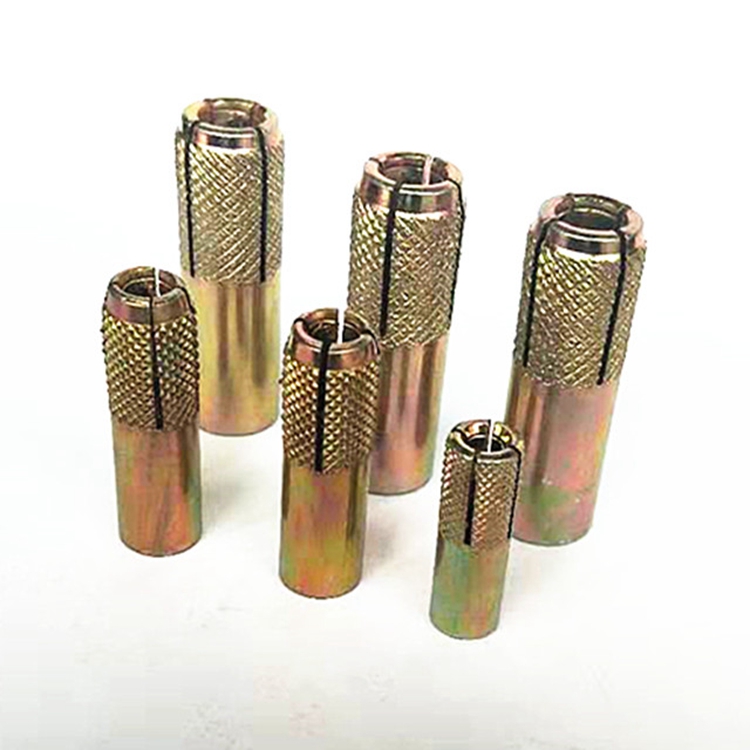stainless steel stud bolt manufacturer
ធ្នូ . 10, 2024 07:47 Back to list
stainless steel stud bolt manufacturer
The World of Stainless Steel Stud Bolt Manufacturing
In the realm of engineering and construction, the significance of high-quality fasteners cannot be overstated. Among the assortment of fasteners, stainless steel stud bolts hold a critical position due to their strength, durability, and resistance to corrosion. This article delves into the manufacturing process of stainless steel stud bolts, the benefits they offer, and the key considerations for companies looking to source these essential components.
Understanding Stainless Steel Stud Bolts
Stainless steel stud bolts are cylindrical fasteners with threads on both ends and a smooth body in the middle. They are essential in various applications, including construction, automotive, and aerospace industries, owing to their remarkable mechanical properties and resistance to harsh environmental conditions. Typically made from alloys of iron, carbon, and chromium, stainless steel provides superior corrosion resistance, making it suitable for applications exposed to moisture, chemicals, and extreme temperatures.
Manufacturing Process
The manufacture of stainless steel stud bolts involves several key steps, each critical to ensuring the final product meets industry standards for quality and performance.
1. Material Selection The process begins with the selection of high-grade stainless steel, commonly used grades include 304 and 316 stainless steel. These materials are chosen for their strength, ductility, and corrosion resistance, which vary according to applications and environmental conditions.
2. Wire Drawing Large rolls of stainless steel are drawn down into thinner wires of required diameters for stud bolts through a process called wire drawing. This process not only reduces the diameter but also enhances the mechanical properties of the material.
3. Cutting and Bending The drawn wire is cut to the desired lengths, which will form the length of the stud bolt. In some cases, the cut pieces might be bent to specific configurations, depending on the requirements of the final assembly.
4. Thread Rolling One of the defining features of stud bolts is the threaded ends. Thread rolling machines apply pressure to create threads on the ends of the cut studs. This process is preferable to cutting threads, as it preserves the material’s integrity and enhances strength.
5. Heat Treatment To further improve the mechanical properties, heat treatment may be applied. This process includes heating the bolts to high temperatures and then cooling them down at controlled rates. This treatment relaxes stresses introduced during previous manufacturing steps and can enhance strength and toughness.
stainless steel stud bolt manufacturer

6. Surface Finishing After threading and heat treatment, the bolts undergo surface finishing processes, such as polishing or passivation. These treatments improve corrosion resistance and surface aesthetics, ensuring that the final product not only performs well but also meets visual standards.
7. Quality Control The final step in manufacturing involves rigorous quality control checks. Each batch of stud bolts is tested for tensile strength, dimensional accuracy, and corrosion resistance. Compliance with standards such as ASTM (American Society for Testing and Materials) ensures the bolts can withstand the rigorous demands of various applications.
Benefits of Stainless Steel Stud Bolts
Choosing stainless steel stud bolts over their carbon steel counterparts offers several advantages
- Corrosion Resistance The chromium content in stainless steel creates a passive layer of chromium oxide that protects the bolt from rust and corrosion, making it ideal for use in humid or chemically aggressive environments.
- Durability Stainless steel stud bolts provide excellent tensile strength and fatigue resistance, ensuring long-lasting performance even under severe loads.
- Aesthetic Appeal The polished finish of stainless steel bolts gives them a clean and professional look, making them suitable for visible applications.
- Low Maintenance Due to their resistance to tarnishing and rust, stainless steel stud bolts require minimal maintenance, reducing long-term operational costs.
Sourcing Considerations
When sourcing stainless steel stud bolts, companies should consider factors such as the manufacturer's reputation, certifications, and the ability to meet specific engineering requirements. It is also advisable to discuss delivery timelines and after-sales support to ensure a smooth procurement process.
In conclusion, stainless steel stud bolts are indispensable components in various industries, requiring meticulous manufacturing to ensure their strength and reliability. As the demand for quality fasteners continues to rise, manufacturers must uphold stringent quality standards to meet the needs of their customers. Through advanced manufacturing processes and a focus on quality control, the stainless steel stud bolt industry continues to thrive, providing essential solutions for today's dynamic engineering challenges.
Latest news
-
Top Wire Bolts Suppliers - Quality & Durable Fasteners
NewsAug.15,2025
-
Trusted Wire Bolts Company | Quality Fasteners Supplier
NewsAug.14,2025
-
Reliable Wire Bolts Suppliers & Manufacturers for Global Needs
NewsAug.13,2025
-
High-Quality Bolts for Lawn Mower Handle Supplier
NewsAug.12,2025
-
Leading Phosphated Drywall Screws Supplier | Bulk & Custom Orders
NewsAug.11,2025
-
Top Wire Bolts Company: Manufacturers, Exporters & Suppliers
NewsAug.10,2025
